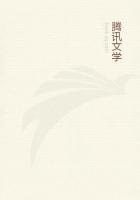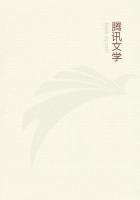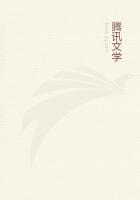For the whole air was dense with the morbidity of blackmail, which is the most morbid of human things, because it is a crime concealing a crime; a black plaster on a blacker wound.
The face of the little Catholic priest, which was commonly complacent and even comic, had suddenly become knotted with a curious frown.
It was not the blank curiosity of his first innocence. It was rather that creative curiosity which comes when a man has the beginnings of an idea. "Say it again, please," he said in a ******, bothered manner;"do you mean that Todhunter can tie himself up all alone and untie himself all alone?"
"That is what I mean," said the doctor.
"Jerusalem!" ejaculated Brown suddenly, "I wonder if it could possibly be that!"
He scuttled across the room rather like a rabbit, and peered with quite a new impulsiveness into the partially-covered face of the captive.
Then he turned his own rather fatuous face to the company.
"Yes, that's it!" he cried in a certain excitement. "Can't you see it in the man's face? Why, look at his eyes!"
Both the Professor and the girl followed the direction of his glance.
And though the broad black scarf completely masked the lower half of Todhunter's visage, they did grow conscious of something struggling and intense about the upper part of it.
"His eyes do look queer," cried the young woman, strongly moved.
"You brutes; I believe it's hurting him!"
"Not that, I think," said Dr Hood; "the eyes have certainly a singular expression. But I should interpret those transverse wrinkles as expressing rather such slight psychological abnormality--"
"Oh, bosh!" cried Father Brown: "can't you see he's laughing?"
"Laughing!" repeated the doctor, with a start; "but what on earth can he be laughing at?"
"Well," replied the Reverend Brown apologetically, "not to put too fine a point on it, I think he is laughing at you.
And indeed, I'm a little inclined to laugh at myself, now I know about it."
"Now you know about what?" asked Hood, in some exasperation.
"Now I know," replied the priest, "the profession of Mr Todhunter."
He shuffled about the room, looking at one object after another with what seemed to be a vacant stare, and then invariably bursting into an equally vacant laugh, a highly irritating process for those who had to watch it. He laughed very much over the hat, still more uproariously over the broken glass, but the blood on the sword point sent him into mortal convulsions of amusement.
Then he turned to the fuming specialist.
"Dr Hood," he cried enthusiastically, "you are a great poet!
You have called an uncreated being out of the void. How much more godlike that is than if you had only ferreted out the mere facts!
Indeed, the mere facts are rather commonplace and comic by comparison."
"I have no notion what you are talking about," said Dr Hood rather haughtily; "my facts are all inevitable, though necessarily incomplete.
A place may be permitted to intuition, perhaps (or poetry if you prefer the term), but only because the corresponding details cannot as yet be ascertained. In the absence of Mr Glass--"
"That's it, that's it," said the little priest, nodding quite eagerly, "that's the first idea to get fixed; the absence of Mr Glass.
He is so extremely absent. I suppose," he added reflectively, "that there was never anybody so absent as Mr Glass."
"Do you mean he is absent from the town?" demanded the doctor.
"I mean he is absent from everywhere," answered Father Brown;"he is absent from the Nature of Things, so to speak."
"Do you seriously mean," said the specialist with a smile, "that there is no such person?"
The priest made a sign of assent. "It does seem a pity," he said.
Orion Hood broke into a contemptuous laugh. "Well," he said, "before we go on to the hundred and one other evidences, let us take the first proof we found; the first fact we fell over when we fell into this room. If there is no Mr Glass, whose hat is this?"
"It is Mr Todhunter's," replied Father Brown.
"But it doesn't fit him," cried Hood impatiently. "He couldn't possibly wear it!"
Father Brown shook his head with ineffable mildness.
"I never said he could wear it," he answered. "I said it was his hat.














